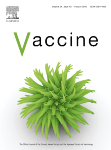![]() We have learned that Nic Cavell, who was dismissed last week from WIRED for plagiarizing in several stories for the publication’s website, was fired from another publication for missing deadlines.
We have learned that Nic Cavell, who was dismissed last week from WIRED for plagiarizing in several stories for the publication’s website, was fired from another publication for missing deadlines.
Before Cavell was selected to be a 2016 reporting fellow at WIRED magazine — a paid six-month position for promising young reporters — he wrote on the crime beat for The Riverdale Press, a Bronx paper. His 20 bylines span February 2015 to June 2015. We have learned from a source who wished to remain anonymous that he was let go after he had trouble handing in those stories on time.
Riverdale Press editor Shant Shahrigian, who declined to comment on the reasons for Cavell’s departure, told us that he had not encountered plagiarism in the reporter’s work: Continue reading Reporter fired by WIRED had been dismissed by newspaper for missing deadlines








